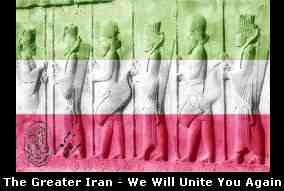Iran: Alarming Increase in Executions - Human Rights Watch

Hojat Zamani, a member of the opposition Mojadehin Khalq Organization outlawed in Iran, was executed on February 7 at Karaj’s Gohardasht prison, Human Rights Watch said today, after a trial that did not meet international standards.
Human Rights Watch also expressed grave concern for the safety of other members of the Mojahedin Khalq Organization imprisoned in Iran, including Saeed Masouri, Gholamhussein Kalbi, and Valiollah Feyz Mahdavi.
Following the election of President Mahmoud Ahmadinejad last year, the number of executions in Iran has increased sharply. According to news articles in the Iranian media, between January 20 and February 20 alone, the judicial authorities executed 10 prisoners and condemned another 21 to the death sentence.
The Iranian judiciary accused Zamani of involvement in a bomb explosion in Tehran in 1988 which killed three people and injured 22. He was condemned to death in 2004, after a court hearing that did not meet international standards for a fair trial, because Zamani was not allowed access to his lawyers.
Zamani was taken from his cell by the prison authorities and hanged inside the Gohardasht prison on February 7, but his execution was not confirmed until a week later, after mounting international protests, by Minister of Justice Jamal Karimirad.
In addition, Human Rights Watch fears the imminent execution of three persons accused of involvement in hijacking an airplane in 2001. They are Khaled Hardani, Farhang Pour Mansouri and Shahram Pour Mansouri. At the time of the alleged hijacking, Shahram Pour Mansouri was only 17 years old.
The Convention on the Rights of the Child and the International Covenant on Civil and Political Rights prohibit the imposition of the death penalty for crimes committed before the age of 18. These treaties also prohibit the use of torture and cruel, inhuman, or degrading punishments. Iran is a party to both treaties.
Human Rights Watch called on the Iranian judiciary to stop applying the death penalty and to abide by its obligations under international treaties, including abolition of death penalty for juveniles and implementation of fair trial standards.
Iranian human rights activists have repeatedly expressed serious concerns that under President Ahmadinejad the government will increasingly resort to violent means to suppress dissent. These worries are accentuated by the presence of several ministers in the cabinet who are suspected of grave human rights violations. The Interior Minister, Mustafa Pour-Mohammadi, for example, is suspected of crimes against humanity for his involvement in summary and arbitrary execution of thousands of political prisoners in 1988.
.42.jpg)


0 Comments:
Post a Comment
<< Home